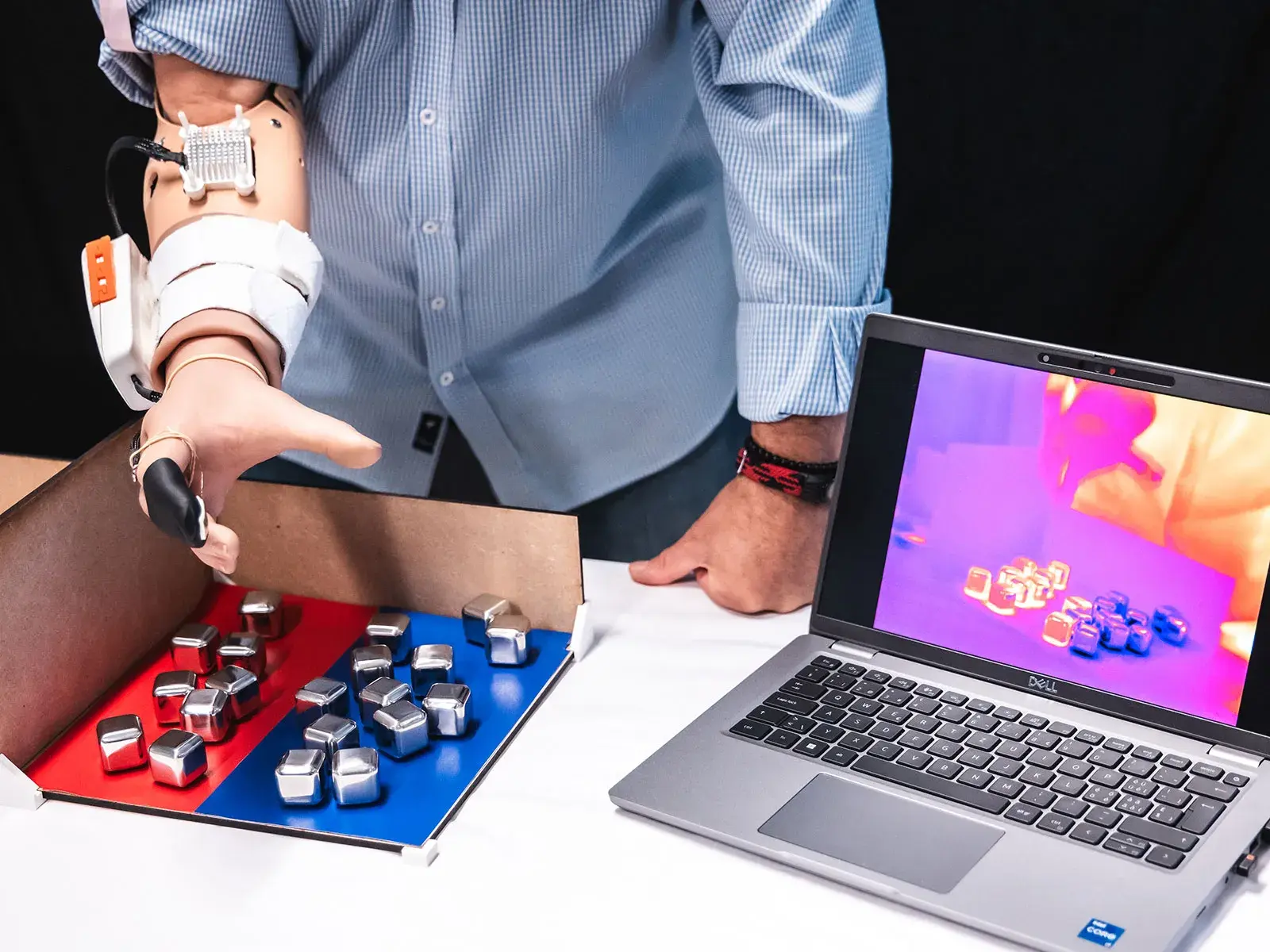- cross-posted to:
- [email protected]
- [email protected]
- cross-posted to:
- [email protected]
- [email protected]
The device provides a realistic sense of hot and cold in the missing “phantom” hand by delivering thermal information to nerve areas on the amputee’s residual limb that the brain believes are still connected to the missing hand.
Nooo! The whole point of having a cybernetic arm/hand is that you can just stick your hand in a great big beaker full of liquid nitrogen-cooled eyeballs and not have to worry about getting frostbite!
You can also just grab the hot pan from the oven and not have to worry about getting burned.
You want temperature sensing? Put a thermistor in one of the fingers and a little OLED display on the arm (or even better: in a HUD that can only been seen in the user’s eye). A nice, high temp one 👍
Lol, I get your point, but for right now the more we can make these feel like normal limbs to the people who need them, the better.
No need to further press down the gas on the potential dystopia. Welcome to your job at the smeltery, please enter surgery room 4 for your mandatory limb replacement with company owned propriatary hardware that is set for our needs to turn you into a disposable meat puppet and blind you of senses of danger, because accounting found that was cheaper than proper safety or using actual robots.
Pretty sure I saw this in a 60’s comic book, lol.
As dystopian as that is, I imagine it’s a whole lot cheaper and more stable to just make a robot and drop a brain into it… Wait, wait, I mean build a robot and develop some kind of interface that enables humans to control them quickly and accurately.
Ah, hell, maybe that comic was right after all.
Thermistor and OLED? I mean you could. But I had a spoon from a box of Lucky Charms in the 90s that tells me there’s a cheaper way.
It’s not a first. I saw this in local trials in 1994. Physically, in person, not online.
Where?
Sabolich Prosthetics in Oklahoma. It was actually pretty simple; a higher frequency signal felt “hot” and a lower frequency signal felt “cold”.
Had to ponder this, as at the time I was asked to stay quiet about it. But I never signed anything,it’s unlikely the person I spoke to is even there any more, and it’s been a long time.
Nah you’re good, sabolich was recently sold to Hanger orthotics and prosthetics. You probably visited when John Sabolich was still running it, and actually still doing research. His son Scott took it over and just made it a cash cow.
But yeah, lots of these types of articles that make claims to “the first to” are only pedantically correct. It’s usually just doing the same as someone else attempted 15 years ago, but this time with a fantasy new surgery that automatically predicates it from being meaningfully utilized anywhere.
Looks like this is similar to what you saw at sabolich years ago, but paired with nerve reintegration. Pretty sure orthotics and prosthetics is simultaneously one of the most over hyped and least understood topics covered by “scientific journalism”. Every article Ive read about my field on social media has been comically inaccurate.
It sounds like instead of a different stimulus to differentiate between hot and cold (like what I think you describe) the limb in the article is able to stimulate nerves that feel “hot” vs “cold”
Either way that’s super cool you saw that back then, always awesome to see how stuff moves along over the years.







